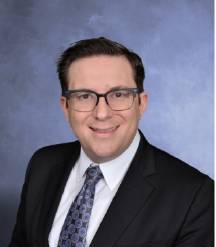
Rabbi Grossman, Head of School
I have set before you today life and death, blessing and curse. Choose life. (Deuteronomy 30:19)
When given the choice, the Torah tells us to choose life and blessing over death and curse. While this may seem obvious, the world of ancient Israel was filled with pagan priests and prophets who sought out spirituality in dark spirits and death. This week’s parasha, Emor, opens by admonishing the Jewish people and its priesthood to stay far from the world of the dead:
The LORD said to Moses: Speak to the priests, the sons of Aaron, and say to them: None shall defile himself for any dead person among his kin. (Leviticus 21:1)
The Jewish people has maintained this separation from death throughout its history. Kohanim, the modern-day descendants of Israel’s ancient priesthood, do not attend funerals or enter graveyards. Jewish cemeteries are always located far from the city to separate the world of the living from the world of the dead. When given the choice, we choose life.
The period between Passover and Shavuot is a dark time in Jewish history, a time during which Rabbi Akiva, the namesake of our school, lost 24,000 of his students to a plague. One small glimmer of life and light in this dark period is Lag Baomer, which began last night and continues today. It is marked in modern Israel by a pilgrimage of tens of thousands of worshippers to the tomb of Rabbi Shimon Bar Yochai, the greatest of Rabbi Akiva’s students, who died on this day over 2,000 years ago. Bar Yochai was the first rabbi to declare that his yahrzeit, the memorial day of his death, be a day of joy, a hillulah, rather than a day of sadness. In so doing he advanced the biblical command: choose life.
Sadly, we do not always have a choice. Last night, amidst the joyous celebration of Rabbi Bar Yochai’s hillulah, 45 pilgrims were killed in a stampede at his grave in Meron in northern Israel. Believed to have been caused by a throng of people who slipped on a ramp in a narrow passageway, it is the greatest loss of life during peacetime in the history of the Jewish state.
This tragedy could not have come at a worse time. Israel has just begun to emerge from the aftermath of the coronavirus, while the rest of the world looks longingly for the light at the end of the COVID tunnel. Everywhere, people are filled with loneliness and anxiety and are surrounded by sickness and suffering. There are now more than three million people worldwide who have perished from the pandemic.
As I wrote one month ago in my Passover message, Rabbi Akiva was renowned for his optimism in the face of tragedy:
Rabbi Akiva witnessed the destruction of Jerusalem, of its Temple, and what was feared to be the end of Judaism and the Jewish people. But while others looked on at the devastation in despair, Rabbi Akiva was cheerful and optimistic, dedicating his energies not to mourning the past, but to rebuilding a new Judaism of the future.
I imagine that Shimon Bar Yochai inherited his optimism from his teacher, Rabbi Akiva. When given the choice, both chose life.
We enter this holy Shabbat in a state of national mourning. Our hearts go out to the families of those who perished in this terrible tragedy. We look forward to a time when we will no longer know of sadness and pain. We hope for a time when we will again be able to choose life.
Shabbat Shalom,
Rabbi Grossman












